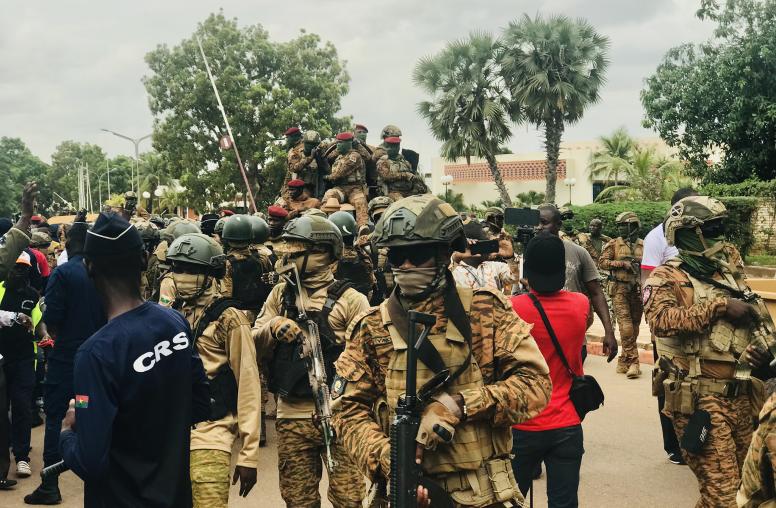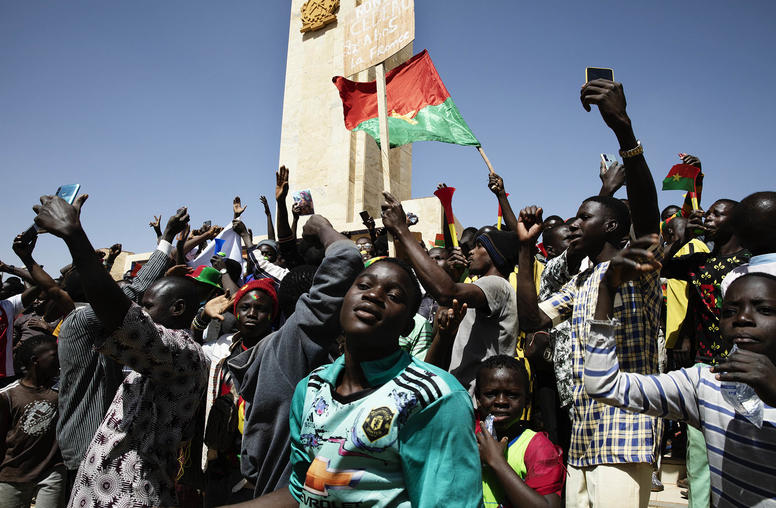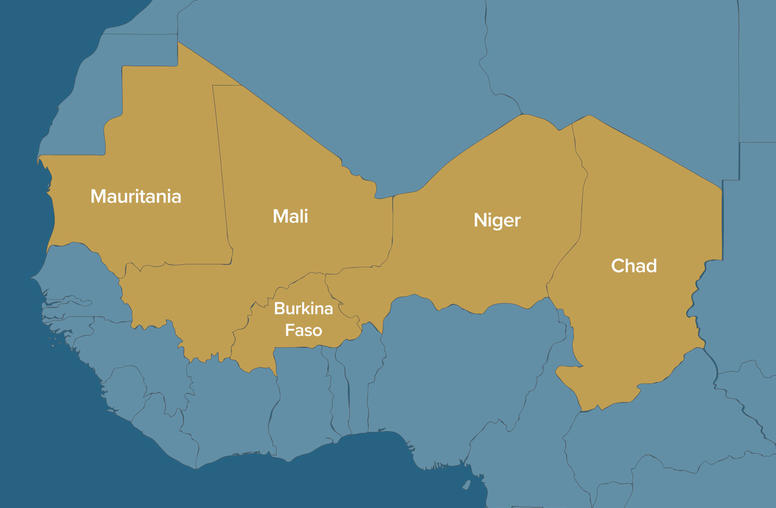 Burkina Faso
Burkina Faso
Burkina Faso's recent history has been marked by political upheaval—including two coups in 2022—as well as mounting threats from terrorist groups and a deepening humanitarian crisis. Insecurity in Burkina Faso complicates efforts to stabilize a geopolitically central region in the fight against growing violent extremism in West Africa. USIP’s work in Burkina Faso includes creating opportunities for government, security officials and civic leaders to jointly develop mechanisms to counter the spread of terrorist groups and reduce the conditions for mass internal displacement. USIP also works to offer practical solutions for U.S. efforts to support a peaceful return to civilian rule and security.
Featured Research & Analysis

In Africa, the Need to Engage with Democracies and Coup Regimes
Three West African coup leaders — a general, a colonel and a captain — gathered last weekend to formally ally their regimes in Niger, Mali and Burkina Faso. Their meeting dramatized two realities for Americans and allies who hope to see our children live in a world governed by laws rather than brute force.

For Sahel Stability, U.S. Needs Broader, Coordinated Policy
As military coups and violent insurgencies have spread across Africa’s Sahel over the past decade, U.S. policy has professed to recognize and address their interconnections across the region, notably through the Trans-Sahara Counterterrorism Partnership. Yet this effort remains insufficient to meet the scale and complexity of the violence and the underlying failures of governance.

For Peace in Sahel, African and U.S. Experts Urge Focused Partnership
The past month has sharpened a decade-old question for U.S. and international policymakers: How best, in 2024, to help stabilize what is now the world’s largest single zone of military rule and violent conflicts — Africa’s Sahel region? After three military-ruled Sahel states withdrew from the West African regional community in January, those juntas last week proclaimed an alliance aimed at resisting international pressures, including those for their return to elected civilian rule. Former U.S. and African officials yesterday urged what they called vital changes in U.S. and allied policies to prevent a dangerous spread of the Sahel’s crises.
Current Projects

Justice and Security Dialogues
In countries of Africa, the Middle East and Asia, USIP has pioneered a method to bring state officials, community leaders and citizens together to work out the roots of their problems and cooperatively rebuild security.

Bipartisan Senior Study Group for the Sahel
In May 2021, USIP created the Bipartisan Senior Study Group for the Sahel comprised of 12 current and former high-level U.S. officials, renowned academics and prominent Africa experts. The senior study group aims to generate new insights into the complex challenges facing the Sahel region, including food security, human rights, security assistance, private sector development and job creation — as well as great power competition. The senior study group will provide original recommendations to the U.S. government and governments in the Sahel region to improve foreign assistance, resolve conflict and support lasting peace.